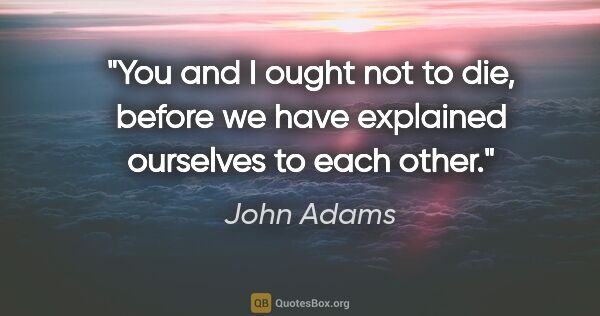Explaining Quotes (page 38)
They may already know too much about their mother and father--nothing being more factual than divorce, where so much has to be explained and worked through intelligently (though they have tried to stay equable). I've noticed this is often the time when children begin calling their parents by their first names, becoming little ironists after their parents' faults. What could be lonelier for a parent than to be criticized by his child on a first-name basis?
Richard Ford
[This is] the only period in all human history when people were proud of being modern. For though to-day is always to-day and the moment is always modern, we are the only men in all history who fell back upon bragging about the mere fact that to-day is not yesterday. I fear that some in the future will explain it by saying that we had precious little else to brag about. For, whatever the medieval faults, they went with one merit. Medieval people never worried about being medieval; and modern...
Gilbert K. Chesterton
Being in trouble can have a funny effect on the mind. I don't know if I can explain this. You go through some days and you seem to be hearing people and you seem to be talking to them and you seem to be doing your work, or, at least, your work gets done; but you haven't seen or heard a soul and if someone asked you what you have done that day you'd have to think awhile before you could answer. But at the same time, and even on the self-same day-- and this is what is hard to explain--you see...
James Baldwin
And yet your shadow isn't following you anymore. At some point your shadow has quietly slipped away. You pretend you don't notice, but you have, you're missing your fucking shadow, though there are plenty of ways to explain it, the angle of the sun, the degree of oblivion induced by the sun beating down on hatless heads, the quantity of alcohol ingested, the movement of something like subterranean tanks of pain, the fear of more contingent things, a disease that begins to become apparent,...
Roberto Bolano
If, instead of this remark, my father had taken the pains to explain to me that the principles of Agrippa had been entirely exploded and that a modern system of science had been introduced which possessed much greater powers than the ancient, because the powers of the latter were chimerical, while those of the former were real and practical, under such circumstances I should certainly have thrown Agrippa aside and have contented my imagination, warmed as it was, by returning with greater...
Mary Wollstonecraft Shelley
This was most alarming, what sort of terrible toil had deranged the poor woman? Would I also have to work day and night till I couldn't stop talking? Perhaps they made her shovel coal for a huge furnace, probably they kept a private crematorium, old people do keep dying off. Maybe they had a chain gang too and we would have to chop stones and sing sea shanties (this would explain why she wore the yachting cap.)
Leonora Carrington
Mr. Buckley, let me explain it this way. And I'll do so very carefully & slowly so that even you will understand it. If I was the sheriff, I would not have arrested him. If I was on the grand jury, I would not have indicted him. If I was the judge, I would not try him. If I was the D.A., I would not prosecute him. If I was on the trial jury, I would vote to give him a key to the city, a plaque to hang on his wall, & I would send him home to his family. And, Mr. Buckley, if my daughter...
John Grisham
And if I may pursue this subject farther I would suggest that the whole matter of imaginative literature depends upon this faculty of seeing the universe, from the aeonian pebble of the wayside to the raw suburban street as something new, unheard of, marvellous, finally, miraculous. The good people--amongst whom I naturally class myself--feel that everything is miraculous; they are continually amazed at the strangeness of the proportion of all things. The bad people, or scientists as they are...
Arthur Machen
There may be coarse hypocrites, who consciously affect beliefs and emotions for the sake of gulling the world, but Bulstrode was not one of them. He was simply a man whose desires had been stronger than his theoretic beliefs, and who had gradually explained the gratification of his desires into satisfactory agreement with those beliefs. If this be hypocrisy, it is a process which shows itself occasionally in us all....
George Eliot
